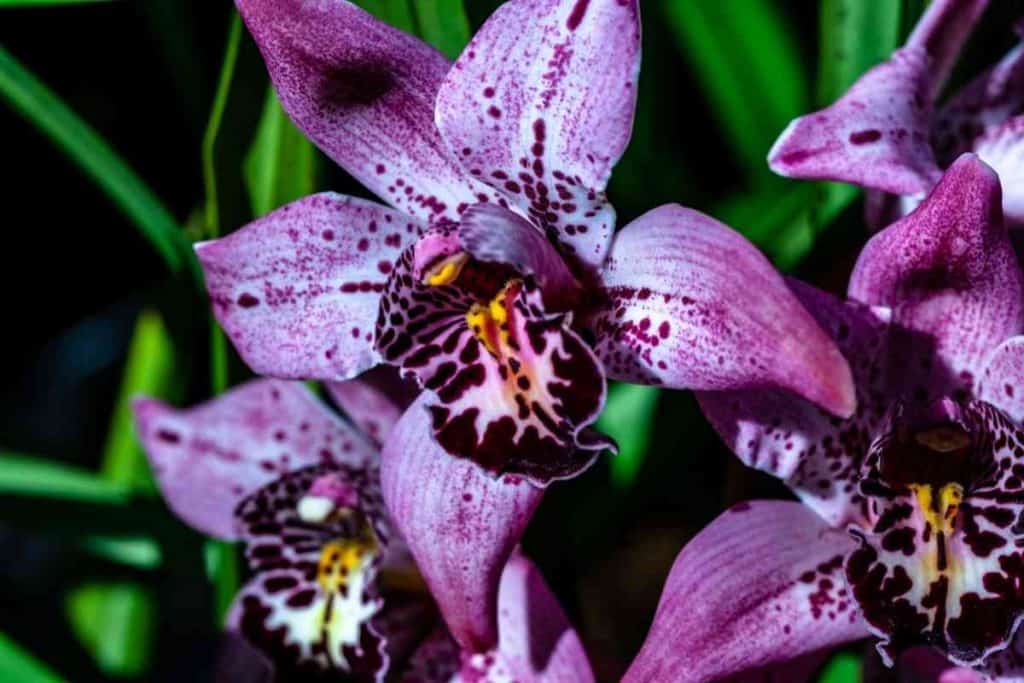It's possible that your favorite flower is an orchid. What's not to love about their graceful stems and effervescent blooms? But what do you do when those lovely blooms begin to fall off? And, more importantly, why are they dropping in the first place?
It's heartbreaking to see your orchid flowers fall off, but why are my orchid flowers falling off? The flowers on your orchid are most likely falling off because the plant has finished blooming.
This is done to prevent the loss of valuable nutrients and to enter the hibernation cycle. Aside from this natural cause, other reasons why your orchid flowers are falling off might be as a result of overwatering, underwatering, lack of sunlight, and too much sunlight.
Below, we will shed more light on why your orchid flowers are falling off. Read on
Table of Contents
Why Are My Orchid Flowers Falling Off?

Below are some possible reasons why your orchid flowers are falling off:
1. Trauma
Like humans, orchid plants can be quite adaptative, especially when exposed to a traumatic environment. Shedding its flower during such a period is a way to survive.
Such traumatic changes include sudden changes in temperature levels, floods, dry seasons, etc. Sometimes, your orchid is shedding flowers as a result of being in a crowded environment. Yes, people passing close by can cause the orchid plant's flowers to wilt and fall off.
Typically, orchids require temperatures ranging from 65 to 80 degrees Fahrenheit. When you ignore this temperature requirement and put it on your AC, it will result in the shed of your orchid flowers.
2. Overwatering
This is usually a problem for newbies in the gardening sphere. If you overwater your orchid, it will be unable to absorb nutrients from the soil needed to keep the blooms healthy, leading to the blooms falling off.
Giving the orchid too much water will also cause the delicate stems of the flowers to weaken, and the flowers' weight will cause them to fall.
To prevent this from happening, make sure that you are properly watering your orchid. Water orchids as soon as the top of the soil feels dry. Check that the pot has drainage holes so that any excess water can drain out.
Read Also: Signs of Overwatered Succulents
3. Underwatering
If you give the orchid too little water, it will quickly dehydrate. The flowers will wrinkle and wilt as a result of this start to shed off.
So yes, while bloom loss can be caused by overwatering, underwatering your orchid is also guilty. If you do not provide enough water for your orchid, its roots will become dry and brittle.
4. Low Lighting Conditions
While orchids can be categorized as light-sensitive plants, their flowers do not exactly fall under this category. When the flowers don't get enough light, they crumple and lose their color.
In low light conditions, the normal photosynthesis process that occurs in the leaves cannot meet the flowers' nutritional needs.
5. Excess Lighting Conditions
When you subject your orchid to too much light, your orchid struggles to keep its cells intact, which will result in its flowers falling off.
In strong light conditions, there is indeed a good chance that there will also be low humidity, causing the orchid to be distressed and lacking the necessary moisture in the air to grow and remain healthy.
Direct light can be tolerated for up to 1-2 hours per day. More than that and your orchid's leaves will be harmed by the sun.
Read Also: Plants that Grow in Fluorescent Light
6. Disease or Pests
Orchids are susceptible to various diseases and pests, some of which may impact their flowers.
Pests like whiteflies, thrips, snails and slugs, and caterpillars affect the flowers, leaving them chewed up and deformed until they eventually fall off.
Fungal diseases such as Anthracnose Colletotrichum & Glomerella spp., petal blight Botrytis sp. can also cause flower to fall off.
To solve the problem, you will need to use a fungicidal spray or an insecticide solution. Make sure you use a fungicidal spray or an insecticide solution that won't harm the plant.
7. Lack of Humidity
Orchids are tropical plants and, as such, prefer a humid environment. Providing this type of environment might be a tad difficult, especially during the winter season.
It is quite normal for orchid flowers to fall off if the air becomes too dry. Thus, you will need to increase the humidity around the plant during this period.
A humidifier or the pebble tray method (filling a tray with pebbles and water) can help to increase the humidity level.
Read Also: Do Succulents Like Humidity?
How to Stop Orchid Flowers from Falling Off
1. You may have to consider repotting, especially if your orchid is severely affected by pests and diseases. When repotting, inspect the roots and remove any that are diseased or damaged. Sterilize the pot and replace it with new potting soil.
2. Reduce watering
3. Reduce the fertilizing frequency and use a weaker solution until new growth appears.
4. Move the plant to a slightly colder location with temperatures ranging from 65 to 75 degrees Fahrenheit.




